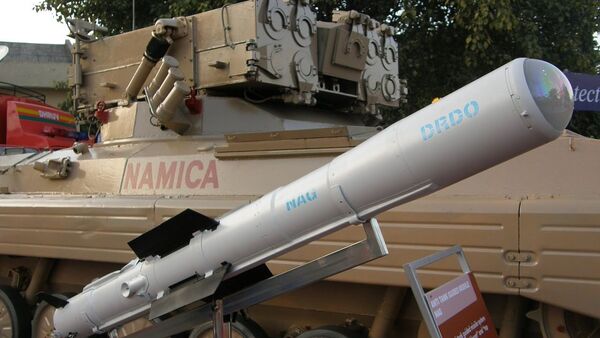India's Defence Minister Rajnath Singh on Friday said: "All missiles met the mission objectives including minimum and maximum ranges, direct attack as well as top attack modes and achieved a direct hit onto the target."
The defence minister has congratulated the user evaluation teams from the Indian Army and developer, state-funded Defence Research and Development Organisation (DRDO), on successful completion of user trials.
The winter missiles user trials were successfully completed in the Himalayan region last December. They were preceded by extensive validation trials of the fire-and-forget ATGM's imaging infrared (IIR) seeker head.
— DRDO (@DRDO_India) July 19, 2019
The 1900 mm long missile has a lock-on-before-launch capability to a range of 4 km, the longest for any anti-tank missile in the world. US' "Javelin" and Israel's "Spike" lock-on-before-launch capability are limited to 2.5 km.
The video released by the ministry shows that the missile with 'fire and forget' and 'top attack' capabilities, was fired from a specially modified Indian license-produced variant of the Soviet-era BMP-II armoured infantry fighting vehicle.
"NAG-fire & forget anti-tank missile uses infrared imaging seeker in lock-on-before-launch mode. The robust imaging algorithm allows missiles to hit targets even in severe summer desert conditions, which is unique in its class," DRDO said in a statement.
DRDO has also been developing the man-portable and helicopter-launched anti-tank guided missile the HeliNa for the air force.
The DRDO was tasked with developing man-portable, anti-tank, guided missiles at the earliest. Defence forces received reassurance that this task would be completed by the DRDO last year.
The Indian Defence Ministry had cancelled the planned $500 million purchase of Spike anti-tank missiles from Israel's Rafael in favour of the DRDO's man-portable anti-tank guided missiles.
The Indian army says it requires at least 40,000 anti-tank guided missiles in the next two decades.


